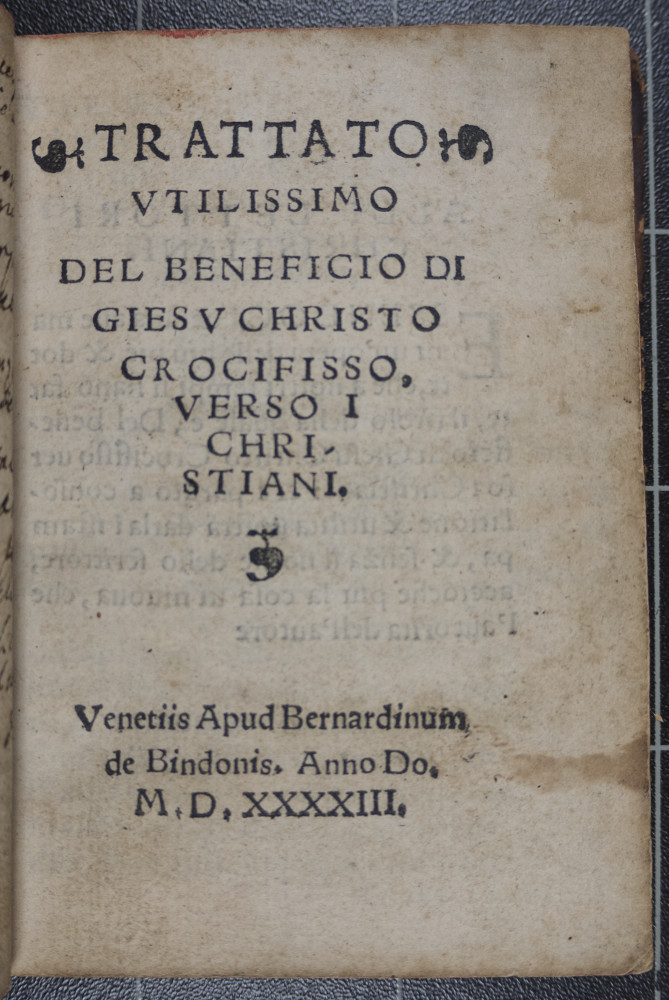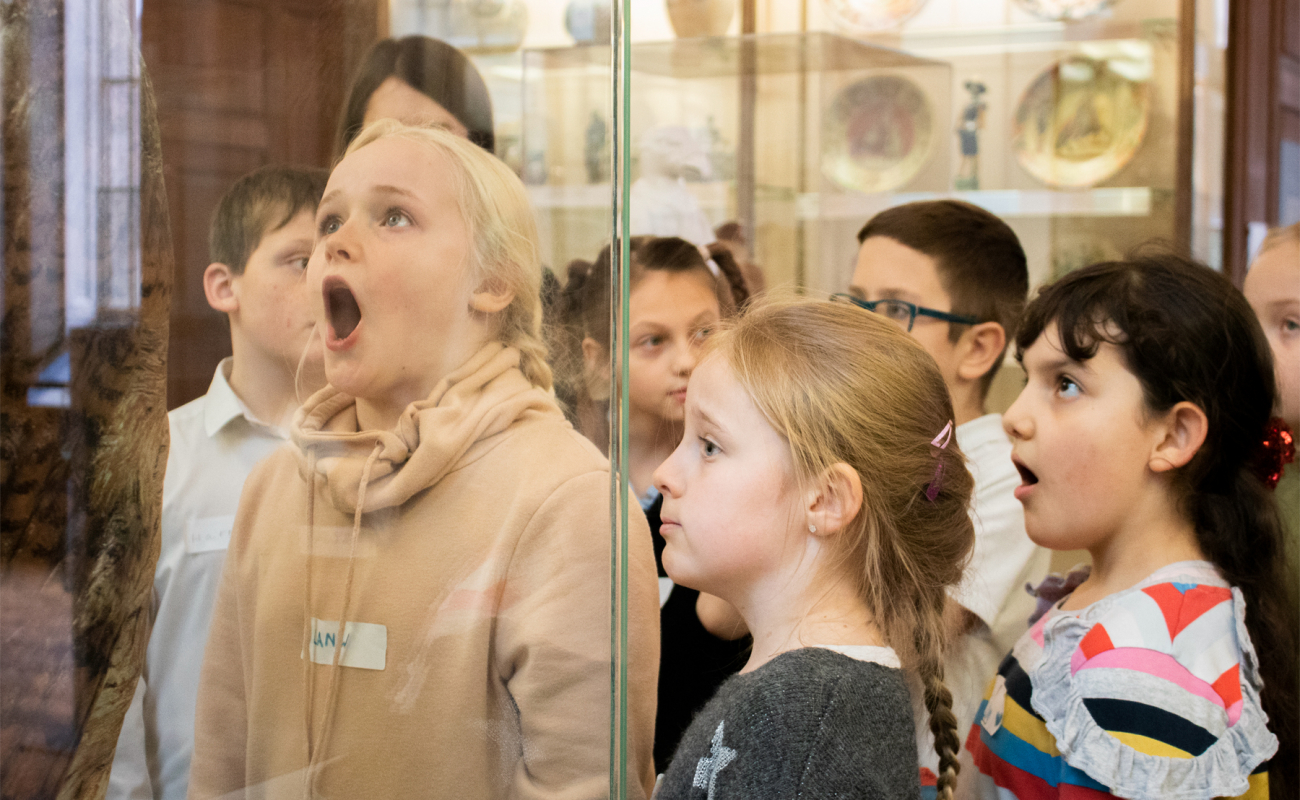
In the mid-nineteenth century, ghost stories were a highly fashionable genre, especially in England. Often set in mysterious Southern Italy, these stories frequently involved forgotten books disclosing disquieting secrets. The story of the Beneficio is, in every respect, an exemplary ghost story. When the Librarians of St John’s College opened a trunk of books bequeathed a century earlier by a Neapolitan doctor, they had no idea they were conjuring up a spectre. What they discovered among the 51 volumes found in the trunk was a long-lost work, the Beneficio di Cristo.
Actually, the work itself was not unknown: editions had been issued in Italy and beyond. Nevertheless, for three centuries none had cast their eyes on a copy of its first edition, which was anonymously printed in Venice in 1543. The discovery must have been a treat for those who believed in numerology: a book published in 1543, catalogued for the first time in 1843, discovered among the books of a doctor who had died in 1744! Yet the book was much more than a rare edition. It was rather a symbol, what remained of a shipwreck. This immensely popular book offered Italian readers solace and consolation in a time of fiery religious conflict and political collapse. In plain and accessible language, it told that Jesus Christ’s sacrifice had freed us from sin, and that our faith can make us safe and escort us to the Heavens.
At the same time, this book built a bridge between Italy and the Reformed world. A world of religious tolerance, grounded on pure faith in the benefit of Jesus Christ, was more than the Roman Inquisition could tolerate. The copies of the Beneficio were feverishly sought and destroyed. Only one escaped this story of censorship and utopic religious harmony, making its way to England and to our exhibition.
Marco Faini Research Associate, Domestic Devotions Project




